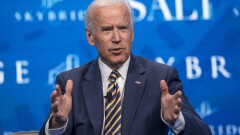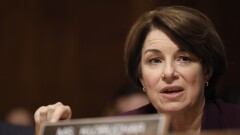Votes are still being counted in last week's midterm elections and already much of the political discussion has shifted to the 2020 presidential contest.
From progressives on the left, to those popular in states seen as pivotal in the next election, a potential Democratic field is already building at a fever pace. They include policymakers with a deep record on banking issues and those whose financial services policy agenda is a relative mystery.
Here are 11 potential presidential contenders and how they are intertwined with financial services issues:
















